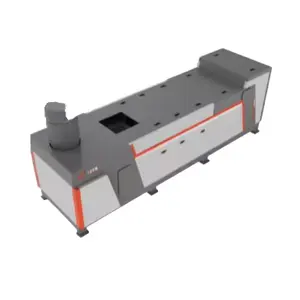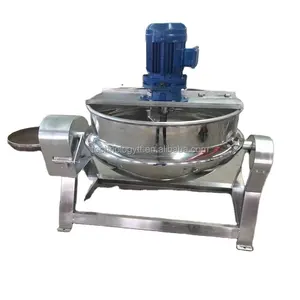What are Food Processing
Food processing is the transformation of agricultural products into food, or of one form of food into other forms. It encompasses a wide variety of operations performed on raw food materials to prepare them for consumption, storage, or further processing. This essential sector serves various stakeholders, including farmers, manufacturers, and end consumers, aiming to enhance preservation, ease of marketing and distribution, and consistency in quality.
The principles of food processing involve physical or chemical means to alter the natural state of the food. These processes include cleaning, chopping, mixing, heating, cooling, fermenting, pasteurizing and packaging. The primary goal is to inhibit microbial growth and enzymatic processes that cause spoilage, as well as to remove toxins and preserve the nutritional quality of the food. Moreover, food processing aims to enhance the taste, texture, and appearance of food, making it more palatable and appealing to consumers.
Businesses involved in this industry range from small-scale operations catering to local demands to large multinational corporations supplying processed foods worldwide. Through various technological advancements, food processing has become more sophisticated and capable of producing a vast array of food products that meet different dietary needs and preferences.
Types of Food Processing
Different types of food processing cater to a diverse range of applications and consumer needs. Here are some common methods:
Canning: This method involves placing foods in jars or similar containers and heating them to a temperature that destroys micro-organisms that cause spoilage. Canned foods are often used in retail and by restaurants due to their long shelf life.
Freezing: Freezing is used to preserve food by slowing down enzyme activity and microbial growth. Items like vegetables, meats, and ready-to-eat meals are commonly frozen for use in various settings including home use and commercial catering.
Drying: By removing moisture from food items through dehydration or lyophilization (freeze-drying), drying effectively preserves foods such as fruits, herbs, and meats. This process is prevalent in snack food factories and spice processing plants.
Fermentation: Leveraging the action of bacteria, yeast, or other microorganisms, fermentation is a process that converts carbohydrates to alcohol or organic acids under anaerobic conditions. It is essential in producing items such as yogurt, cheese, bread, and alcoholic beverages.
Pasteurization: This heat treatment process kills pathogenic microorganisms in certain foods and liquids like milk, juice, canned goods and wine without spoiling the food or altering its nutritional value significantly.
Each method has its specific use cases depending on the desired shelf-life, taste profile, nutritional integrity, and cost-effectiveness required by various industries such as dairy product factories and meat processing plants.
How to choose Food Processing
Selecting the right kind of food processing service hinges on understanding your business needs and matching them with the appropriate technology. Considerations include:
The nature of the raw materials: Different foods require different processing methods; for instance, delicate fruits may need gentler methods like pasteurization rather than rigorous ones like canning.
Desired shelf life: If you aim for long-term preservation without refrigeration, techniques like canning or drying might be ideal.
Nutritional preservation: Certain methods like freezing retain more nutrients compared to others.
Consumer preferences: Some customers may prefer minimally processed foods for health reasons or flavor which might influence your choice towards methods like fermentation.
It's pivotal for businesses to ponder these elements when deciding on a processing method that not only preserves the integrity of their food products but also aligns with their operational capabilities and market demands.
Best Food Processing on Alibaba.com
Alibaba.com stands as a global marketplace connecting businesses with an extensive array of food processing services tailored to meet diverse needs. The platform showcases a variety of suppliers offering services ranging from drying and freezing to fermenting and canning. With Alibaba.com's vast network spanning across numerous countries including Vietnam, India, Russia, United States among others - businesses have access to cutting-edge food processing technologies that cater to different industries such as beverage factories or snack food production.
The platform's commitment to aiding small and medium-sized enterprises is reflected in its user-friendly interface which allows easy navigation through the multitude of options available. Moreover, Alibaba.com's Trade Assurance service offers peace of mind by ensuring payments are secure until delivery is confirmed. The extensive list of suppliers ensures competitive pricing without compromising on service quality.
For businesses looking for efficient ways to process their food products while tapping into global expertise and resources reliably - Alibaba.com emerges as an indispensable tool that streamlines sourcing requirements while providing support through services like online support and technical video assistance.
Common FAQs for Food Processing
What is food processing and why is it important for businesses?
Food processing involves transforming raw ingredients into consumable food products or altering existing food items into other forms. It's vital for businesses as it extends the shelf-life of produce, enhances food safety, and allows for greater variety in products which can meet consumer demands more effectively.
How does canning extend the shelf-life of food products?
Canning preserves food by sealing it in airtight containers and heating to a temperature that destroys microorganisms. This process prevents spoilage and allows the food to be stored for extended periods without refrigeration, which is beneficial for businesses that need to manage inventory and reduce waste.
Why is freezing considered a reliable method of food preservation?
Freezing food slows down enzyme activity and microbial growth, effectively preserving the food's quality, nutritional value, and safety. It's a reliable method for businesses because it retains most of the food's original characteristics and extends its usability.
What are the benefits of drying food as a processing method?
Drying removes moisture from food, inhibiting the growth of bacteria, yeasts, and molds that typically spoil food. The benefits for businesses include a longer shelf life, reduced weight and volume for easier storage and transportation, and often an intensification of flavor.
How does fermentation change the properties of food?
Fermentation uses bacteria, yeast, or other microorganisms under anaerobic conditions to convert carbohydrates into alcohol or organic acids. This not only preserves the food but can also enhance its flavor, digestibility, and nutritional value.
What types of businesses can benefit from pasteurization services?
Businesses involved in dairy products, juices, canned goods, wines, and similar beverages can benefit from pasteurization services as this process extends shelf life and ensures product safety by destroying pathogenic microorganisms.
How do I choose the right type of food processing for my business?
The choice depends on factors such as the type of raw material you work with, the desired shelf life, nutritional content preservation requirements, cost considerations, and consumer preferences. It's important to align your choice with your business needs and market demands.
What are some considerations when selecting equipment for my food processing plant?
Considerations include the compatibility with your raw materials, process capacity, ease of operation and maintenance, energy efficiency, compliance with industry standards, and after-sales service availability.
Can processed foods still maintain their nutritional value?
Yes, many processed foods retain most of their nutritional value. However, certain processes might lead to some loss of nutrients. Techniques like freezing and drying tend to preserve more nutrients compared to other methods like canning or frying.
What are some common applications of food processing machinery in various industries?
Food processing machinery is used in diverse applications such as preparing snacks in a snack food factory, processing meats in meat processing plants, creating frozen goods in frozen food factories, or producing dairy items in dairy products factories.
How does Alibaba.com facilitate sourcing for food processing machinery?
Alibaba.com connects businesses with suppliers offering a wide range of food processing machinery suitable for various applications across different industries. The platform allows easy comparison of suppliers' offerings without compromising on quality or service.





















 浙公网安备 33010002000092号
浙公网安备 33010002000092号 浙B2-20120091-4
浙B2-20120091-4